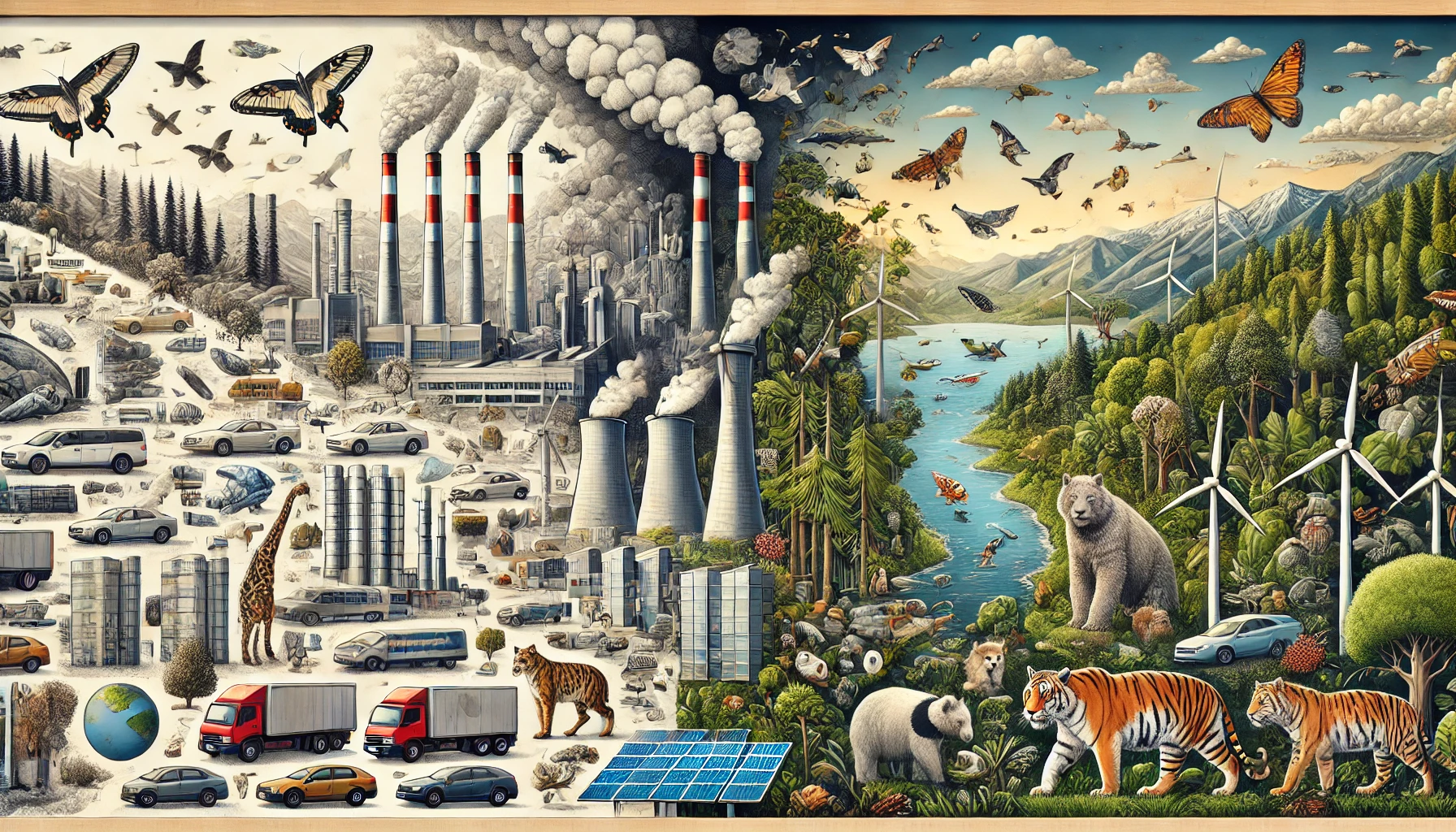As we face the reality of climate change, the need for environmental conservation has become more urgent than ever. The balance of ecosystems, human health, and the sustainability of our planet depend on our ability to mitigate climate impacts and actively preserve natural resources. This article highlights the key challenges posed by climate change and the conservation efforts aimed at counteracting these effects, with insights from leading environmental studies and reports.
The Pressing Issues of Climate Change
Human activities such as deforestation, fossil fuel burning, and industrial emissions have significantly contributed to global warming. According to the Intergovernmental Panel on Climate Change (IPCC), human-induced emissions of greenhouse gases are the primary driver of recent climate change (IPCC, 2021). These emissions trap heat in the atmosphere, leading to a cascade of effects including more extreme weather patterns, rising sea levels, and disruptions to biodiversity.
The World Wildlife Fund (WWF) emphasizes that climate change accelerates biodiversity loss by destroying habitats and altering ecosystems at a rate faster than many species can adapt (WWF, 2023). The loss of biodiversity not only affects wildlife but also impacts human communities that depend on these ecosystems for resources like food, water, and medicine.
Conservation Efforts: Taking Action for a Sustainable Future
In response to these challenges, various conservation initiatives have been implemented globally. These initiatives aim to reduce greenhouse gas emissions, protect ecosystems, and promote sustainable practices.
- Reforestation and Afforestation: Forests play a critical role in absorbing CO₂ from the atmosphere. Reforestation and afforestation projects, such as those advocated by the United Nations Environment Programme (UNEP), help restore degraded lands, support biodiversity, and mitigate climate change by enhancing carbon sequestration (UNEP, 2022).
- Transition to Renewable Energy: Shifting from fossil fuels to renewable energy sources like wind, solar, and hydropower is essential for reducing carbon emissions. Many countries are investing in renewable energy infrastructure to lower their carbon footprints. The International Renewable Energy Agency (IRENA) reports that renewables have the potential to meet up to 90% of the global power demand, drastically reducing emissions (IRENA, 2023).
- Wildlife Conservation and Protected Areas: Protecting critical habitats and establishing conservation areas have proven effective in preserving endangered species. The International Union for Conservation of Nature (IUCN) supports the establishment of protected areas as a means to safeguard biodiversity and protect ecosystems from degradation (IUCN, 2021).
- Promoting Sustainable Agriculture: Agriculture is both a contributor to and a victim of climate change. Sustainable farming practices, such as crop rotation, reduced chemical use, and organic farming, are essential for maintaining soil health, reducing emissions, and conserving water resources, according to the Food and Agriculture Organization (FAO) (FAO, 2022).
Conclusion: A Collective Responsibility
Addressing climate change and protecting the environment require collective action from governments, organizations, and individuals. By supporting conservation efforts, adopting sustainable practices, and raising awareness about the environmental impact of our actions, we can create a more resilient and sustainable world for future generations. The challenges are significant, but with concerted efforts, we have the opportunity to make a positive impact on the health of our planet.
References:
- Intergovernmental Panel on Climate Change. (2021). Climate Change 2021: The Physical Science Basis.
- World Wildlife Fund. (2023). Living Planet Report.
- United Nations Environment Programme. (2022). Forest Restoration and Climate Change.
- International Renewable Energy Agency. (2023). Renewable Energy: A Pathway to Sustainability.
- International Union for Conservation of Nature. (2021). Protected Areas and Biodiversity.
- Food and Agriculture Organization. (2022). Sustainable Agriculture and Climate Change.


